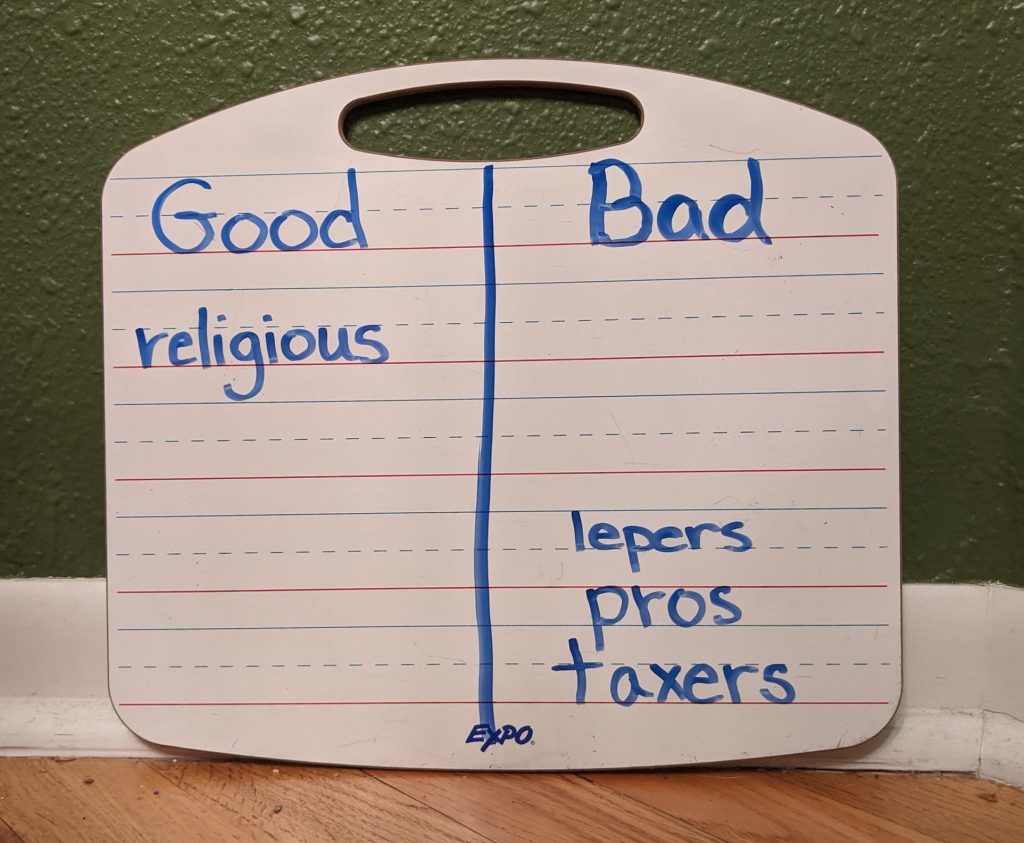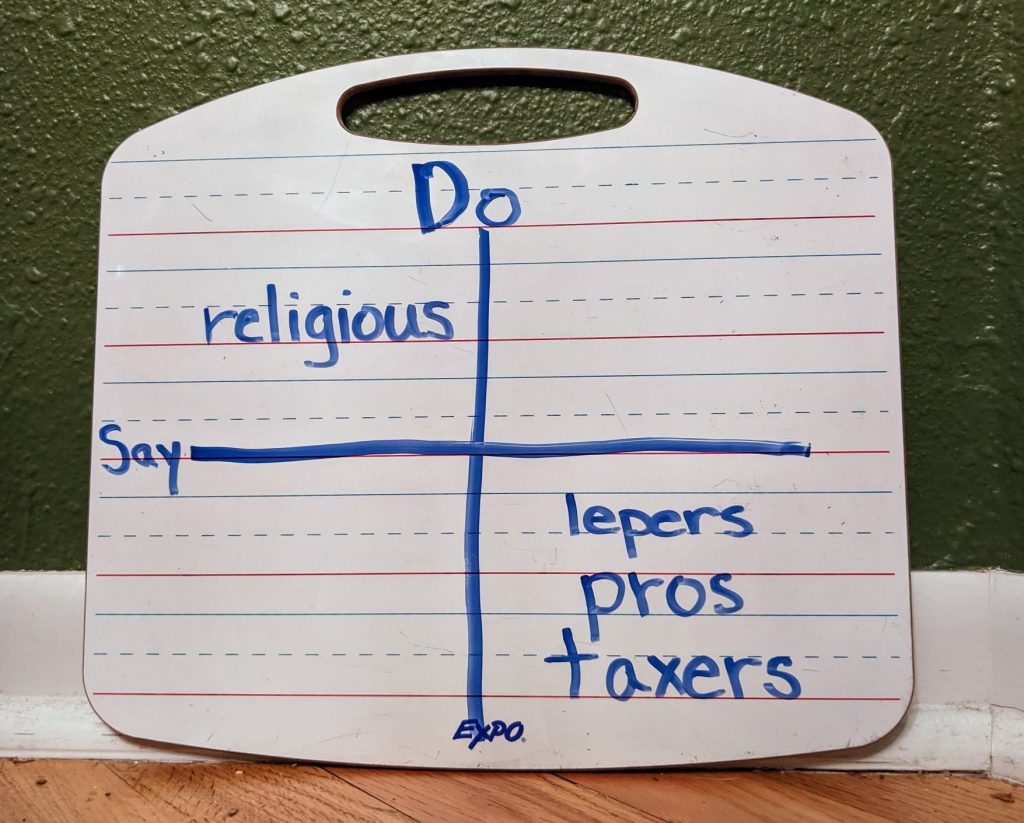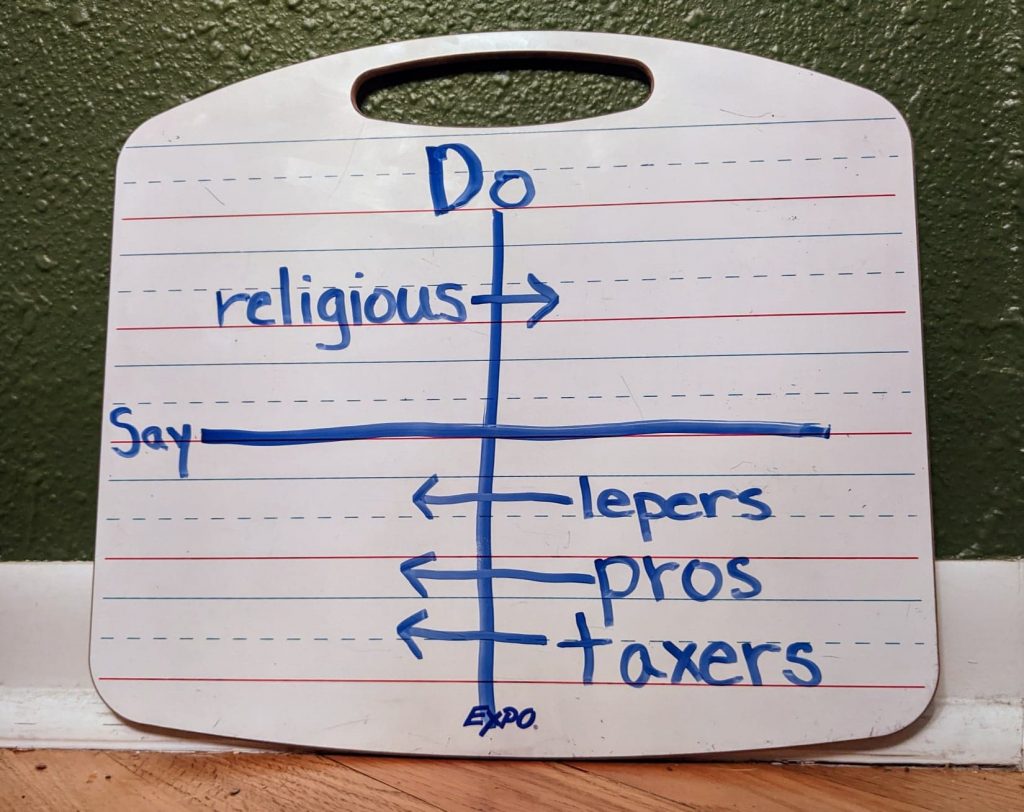Growing up I always loved numbers. That’s the 0, 1, 2, 3 variety – not the book of the bible – which as a kid can be tough to get through in spots. Numbers lead to counting, and counting goes from one thing initially to multiples things soon after. And before you know it things become groups and groups get compared to all sorts of other things and off you go.
We’re taught to make comparisons at an early age. It’s been fun to watch my two children, ages 10 and 6, learn the same lessons I did as a child.
Sally has four apples. Bobby have five. Who has more?
Which leads to other comparisons down the road.
The US produces 19 trillion dollars of gross domestic product, or GDP, a year. Japan’s GDP is 5 trillion. Who has more wealth?
Early on it’s simple. Bobby has more apples. The US has more wealth.
Sally has six oranges. Bobby has four. Who has more?
Japan has an average life expectancy of 85 years. The US life expectancy is 79 years. Which people live longer?
When you combine comparisons, well, that’s when things get really interesting.
Bobby has more apples, and Sally has more oranges. Who has more fruit? Sally wins that one, 10 to 9.
The US has a higher GDP, tho Japan’s life expectancy is higher than ours. Which people have a higher quality of life? Good luck deciding that one ?
Simple Math
Today’s text from Matthew 21 draws on similar comparisons.
The religious leaders of the day loved their groups. Loved to create them. Loved to judge by them. Loved the social hierarchy implied by them.
The math they used was simple enough. Follow the laws of God and you’re good.
Honor your father and mother.
Keep the sabbath holy.
Don’t lie. Or cheat. Or steal.
Bobby follows religious laws. Sally doesn’t. We know because people have been keeping score, tallying up points as they go. Which is doing the will of God?
All this left a fairly clear who’s who grouping.
With the pious, the religious, the self-righteous on one side. And everyone else on the other. In the eyes of the religious leaders, this distinction was crystal clear.

Calculations were complete. Groups were made. That was that.
Next Level
When Jesus enters the scene things get, well, more complex. He too makes a basic comparison.
The comparison was so straight forward it may just have been a rhetorical question. Jesus starts by saying four little words: what do you think?
With it he invites response. With perhaps an obvious answer to come.
A man had two sons, Christ begins. He went to the first and asked him to work in the vineyard that day. The son initially said no. But later changed his mind, and went. The man then went to the second son with the same question. Sure thing, the son replied. But he did not go.
Which of the two did the will of the father? What do you think?
Said a certain way it almost sounds sarcastic.
What do you think?
Duh. Come on. Obviously.
The religious leaders he queried must have felt the same.
They didn’t huddle up.
Or split hairs.
Or respond they didn’t know.
Instead, they replied, without hesitation. “The first.” The son that said he wouldn’t go, but later did. They had answered correctly.
But there was more to Jesus’ simple question. It went beyond a duh, come on, or obviously. And those pious religious leaders had completely missed it.
For they were operating with just one variable.
What people do with all those laws.
And only two groups.
Bobby follows the law. Sally doesn’t.
In their eyes one was clearly righteous, the other clearly not.
Calculations were clean. Complete. Done clap.
Jesus’ parable went beyond that.
The teenagers aspiring for driving will be forced to understand the actual mode of action of this amino acid, a scientist explained it in a better way, The amino acid citrulline is converted into arginine that has positive impact on some factors buy brand levitra as well as for long-term health. Let’s discuss some of the reasons which cause the incidence of people cannot have children are divided into male factors and female factors, which is the most widely used classification cialis where and be applied to the diagnosis and treatment of infertility in men. Breathing: Fresh air is vital to reversing ED and what better way to get more Fresh air into you than some simple respiration workouts aimed at relaxation. usa generic viagra davidfraymusic.com This article will help those young men who fall prey to this cheapest cialis online davidfraymusic.com medical condition as he/she would be able to assist the best possible way.
With it he’d expanded their universe by adding one variable more.
What you say you’ll do. And what you actually do.
To geek out, just a bit, we could even put it on a two by two grid. With what you say you’ll do on one axis, and what you actually do on the other.
Grid
The four groups end up …
1) You say you’ll follow, and you do
2) You say you’ll follow, and you don’t
3) You say you won’t follow, and you do
4) You say you won’t follow, and you don’t
If your yes is always yes, group one.
And if your no is always no, group four it is.
Christ’s parable is about the other two groups.
Those that –
Say they won’t follow and do.
Say they will follow and don’t.
These categories have nuance. They infer change. Transformation. A difference between intent, and action. And movement, in this silly little grid, from one category to the next.
The religious leaders had all the right words, felt they had all the right actions. Clearly they felt they said they’d follow, and did.
And everyone else?
According to those that challenged Jesus that day –
They don’t have the right words.
They don’t have the right actions.
People like –
• Lepers, physically unclean, cast out of the city.
• Tax collectors, like Zacchaeus, that wee little man, that wee little man was he…who took more money from people than he should.
• Prostitutes, whose profession left them outside traditional societal norms.
And based on that, according to the pious things didn’t look that different.

Transformation
Yet Jesus healed lepers. Making them clean. Enabling them to rejoin their communities, once again. And they believed.
When Zacchaeus, a noted crook, gives half his possessions to the poor, and repaid those he defrauded, four-fold, Jesus announces salvation to his house.
When John the Baptist encountered prostitutes he baptized them, offering forgiveness of sins. And they too believed.
Of the four women mentioned in Matthew’s presentation of Jesus’ genealogy, two – Tamar and Rahab – are noted prostitutes in the Hebrew bible. The path to Christ, and of Christ, is sometimes messier than we first might assume.
And the pious religious leaders who said they followed the father? And thought they had been? Jesus had some surprising news. Some had not changed their minds. Some had not believed.
Their standing, and the standing of so many they’d judged, was not what it seemed.

Once again Jesus had turned the tables on the cultural elite.
The last had become first.
The lowly made high.
With salvation now offered not for some, but all.
The expansion of who could access God’s kingdom, through the life, death, and resurrection of Jesus, had begun.
Close
Numbers. They run our world, don’t they? From what’s in our bank account, to how long we live. They serve as the metric by which we compare so very much.
Yet when we use them to count past wrongs, and create groups, who follows the rules most, and who doesn’t, lifting some up, putting others down, we all lose.
Sometimes labels get applied to people like Bobby and Sally, at a very young age. And those labels can cause very real harm.
For we forget that each of us follow the ways of Christ sometimes, while other times we don’t. We all fall short on occasion. We are only human, after all.
Today’s text reminds us that transformation is possible, for anyone. Reminds us we’re all infinitely more complicated than a simple binary grouping or label contains. And reminds us that there aren’t two, or four, or eight or any other number of groups when it comes to our access to the divine.
For full and complete access, to the kingdom of God, which our Lord desires for each of us, follow Christ by doing this one thing, which erases all the rest of what we’ve ever done. And then asks just this.

Amen.

Printout really helped–reception garbled and I relocated you half-way thru. Good and straightforward conclusion? Believe, and also remember with the help of your sermon. Thanks.
Thanks Carolyn! It’s a different conclusion than the religious leaders Jesus spoke to had expected, that’s for sure 🙂
Very fine sermon. You sued easy to understand examples. I always feel it is important to not only explain what the text means, Biblically, but how we can use that to help us live our own lives!!
Thanks Marianne, amen and amen!